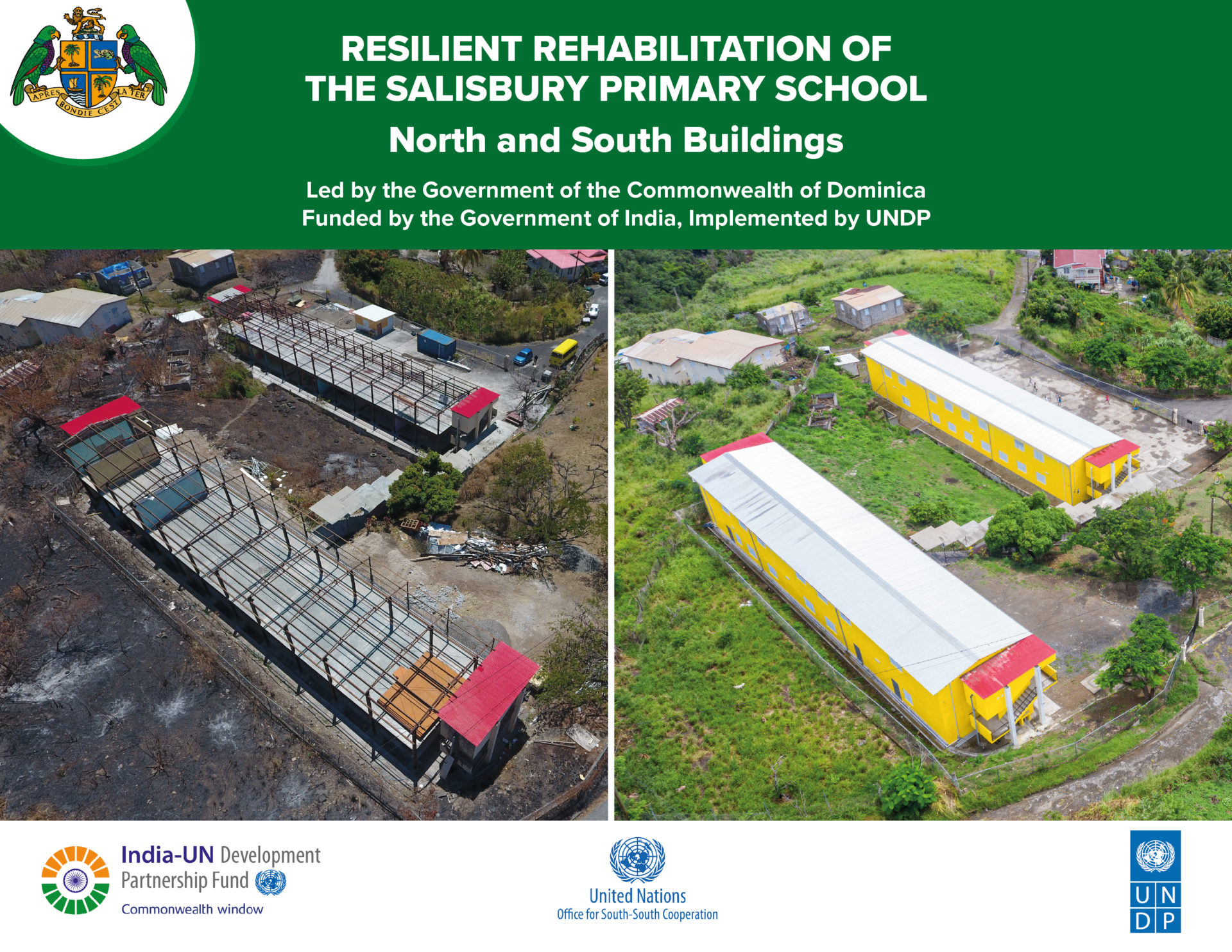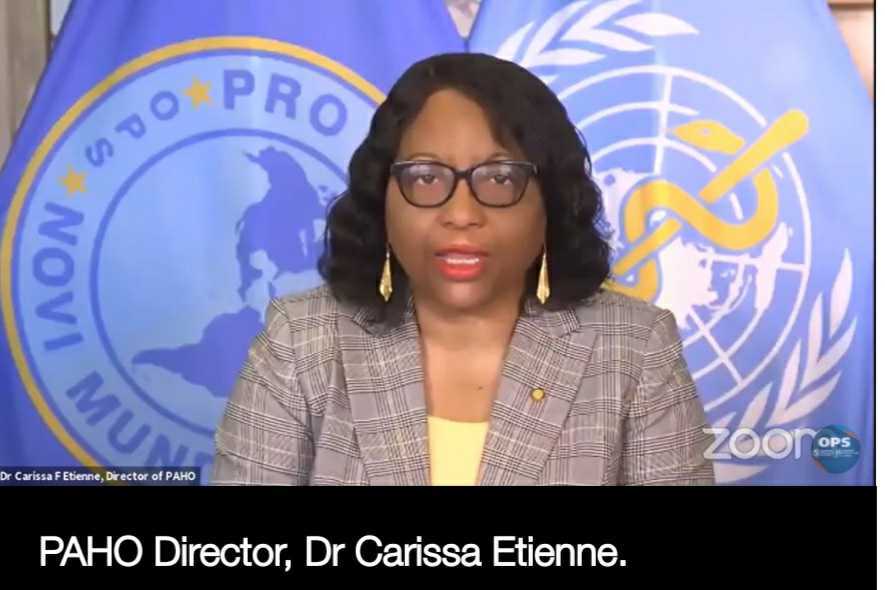
More than a hundred primary school-aged children and community members will now benefit from the newly restored Salisbury Educational Facility in the village of Salisbury. Under the leadership of the Government of Dominica, with financial support from the India-UN Partnership Fund and in collaboration with the United Nations Office for South-South Cooperation (UNOSSC) and the United Nations Development Programme (UNDP) Barbados and the Eastern Caribbean, the reconstruction of the two buildings on the Education Campus have been successfully completed and is the largest school completed in Dominica post-Hurricane Maria to date.
The devastating 2017 hurricane damaged over 80% of the primary schools on the island which severely impacted students’ accessibility to education. In response to the disaster, demonstrating South-South solidarity and cooperation among developing countries, the India-UN Partnership Fund donated $1,000,000 to assist in the repair and rebuilding of public schools in Dominica. UNDP administered these funds in cooperation with the Government of Dominica to rebuild the Salisbury Educational Facility. The buildings house classrooms, administrative offices, an auditorium, adult education rooms, early childhood facilities, a library, science labs and washrooms. The Campus also serves as an essential hurricane shelter for the community.
The restoration efforts in Dominica were conducted using UNDP’s “build back better” approach to ensure resilience against future shocks. This approach informs Government policy and requires that all new and renovated government infrastructure must be constructed or strengthened to meet the current standards for seismic and hurricane events, and incorporate green and renewable technology and energy. The new Salisbury buildings are no exception, they meet current standards and also have upgraded electrical and plumbing systems.
Speaking on the work completed, Ugo Blanco, Resident Representative, a.i. UNDP Barbados and the Eastern Caribbean highlighted the importance of enhancing climate resilience in recovery efforts. “It is our responsibility to build back stronger,” Blanco noted, “Building Back Better is not only a nice slogan, jointly we must turn it into a reality. Dominica has committed to become world’s first climate-resilient nation and this project is an important step in that direction, while supporting key areas, such as education, which are vital for development and growth.”
With the additional disruption caused by the ongoing COVID-19 pandemic, this renovated facility will accelerate the return of essential schooling for students and provide a safe haven in the event of future disasters and external shocks. Minister of Education, Octavia Alfred, applauded the efforts to build back better and emphasised the significance of resilient educational institutions, mentioning that “Ensuring that all Dominican students are provided with safe spaces for learning is part of the child friendly school philosophy. The physical environment of our schools serve a most important function in ensuring that students thrive and are successful”. Thus “the rehabilitation of the Salisbury Primary School has been at the forefront of the Ministry of Education’s agenda since the passage of Hurricane Maria”.
Congratulating the Government of Dominica and UNDP, Adel Abdellatif, Director, a.i., UNOSSC, noted “Government of India’s flexible and demand-based approach to South-South cooperation, embodied in the India-UN Development Partnership Fund managed by UNOSSC, supports partner government priorities like the Government of Dominica’s objective to rebuild the Salisbury Educational Facility better, post disaster”.
The primary school has an enrolment of 103 students, 14 staff, and provides classes from kindergarten to grade 6, with most students from the village of Salisbury. The Early Childhood Centre serves approximately 20 children and adult education programmes and community events will also be held on the campus. Projects such as this underscore UNDP’s commitment to ensuring the achievement of inclusive and quality education for all (Sustainable Development Goal 4) and reaffirms the belief that education is one of the most powerful vehicles for promoting sustainable development.






